When Covid-19 hit, we noticed an interesting pattern start to emerge. People had more time to invest in training and professional development. We’ve seen a definite uptick in coaches and consultants applying for our e-learning course to become accredited PCS Practitioners. Just last week, Michael Castle, Executive Director of Leadership for Life, became the 200th person to successfully complete the training. With a passion for supporting people and organisations to release and realise their potential, we asked Michael about his plans for using PCS and how he found the e-learning experience.
Leadership for Life is a bespoke leadership and workforce development consultancy focusing on organisational performance, people, culture and climate. They support clients to nurture individual leadership behaviours that inspire achievement, qualities that build trust and transferable skills that support sustainability and growth.
One of their challenges is the ability to present tangible data demonstrating the disconnect in organisations between people, leaders and teams, and how it impacts on climate and ultimately performance. Michael explains, “While there maybe varying degrees of complexity underlying this, the relationship between leaders and teams is the one factor that makes a significant difference.” It became apparent to Michael that the PCS tool, with its focus on measuring team and leadership performance, could be the answer. He continues, “It was a simple decision to make – Performance Climate System is aligned exactly with that we want to achieve for our clients. It adds significant value, credibility and confidence for our clients as it is based on well-researched, tested and validated principles and practices.”
PCS enables coaches and consultants to measure team and leadership performance across 6 key segments: Goals, Roles, Processes, Adaptability, Connection and Resilience. The online surveys gather both quantitative and qualitative data giving powerful insights into team and leadership performance and providing a clear framework around which to build robust and effective coaching interventions.
Chris Milliner, Director, PCS, echoes Michael’s reasoning, “As Learning & Development budgets begin to come back on stream, organisations are understandably looking to future proof their workforces – streamlining them, building in resilience and adaptability. It stands to reason that coaches and consultants who can offer clients tangible, data driven outcomes, will put themselves head and shoulders about their peers.”
The process to become an accredited PCS Practitioner is facilitated online through a series of e-learning modules designed to familiarise learners with the theory, the tool and how to interpret the rich data within it. Having completed the training in just 4 hours, Michael comments, “The course was well structured and supported with various resources, including articles, case studies and practice reports to ensure a minimum baseline of knowledge and understanding is achieved, prior to joining the PCS Practitioner community. Overall it was a positive learning experience that provided a good grounding in the use of the PCS tool.”
Now at two hundred strong, the PCS Practitioner community is growing quickly with recently accredited coaches and consultants in the UK, Australia and the US. Chris explains, “We’re very proud of our growing international community of PCS Practitioners. We’re passionate about creating a supportive environment for anyone involved in using PCS. We routinely provide a mix of CPD webinars, newsletters, thought leadership articles as well as providing opportunities for Practitioners to connect with each other.”
If you would like to find out more about becoming a PCS accredited Practitioner, please visit our Practitioner page or contact us by emailing info@performanceclimatesystems.com .


